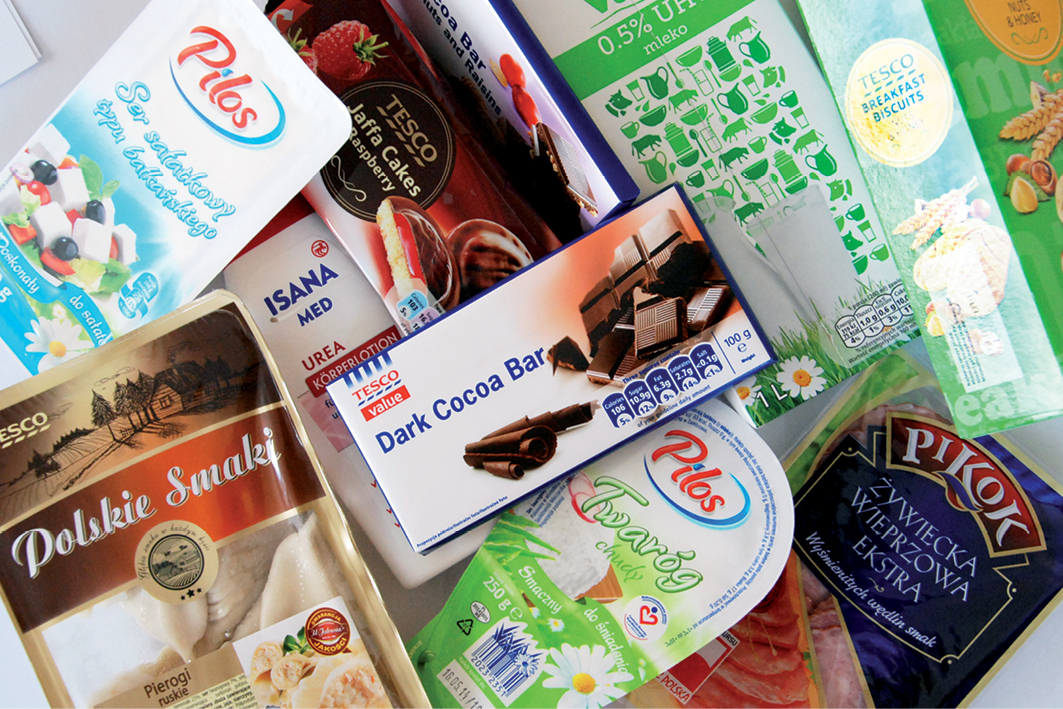Dynamic growth
In several product categories, such as chemicals and food, private labels already account for more than 50 percent of the market. Their sales are growing rapidly in Poland. In 2013, the value share of private label sales in the FMCG basket was 18.2 percent, showing an increase of 1.5 percentage points compared to 2012. The sales value of private label products, year on year, increased by almost 9 percent, while the sales of branded products fell by more than 2 percent. Private labels now have more than 20 percent of the market share and may ultimately reach as much as 40 percent.
The increased interest in products without the formerly esteemed manufacturer's logo can be already seen in all mature markets. In the United Kingdom, Belgium and Germany, their market share is over 40 percent, and over 53 percent in wealthy Switzerland.
What is the nature of private label success
Primarily, the price, which often works wonders. If, in fact, we are dealing with a popular product in an interesting, good quality package, then we are talking about the extra costs it will generate. It is often also supported by a campaign promoting the brand. If all those extra costs get eliminated, the price will go down and the quality will still be the same. Furthermore, in order to enter overseas markets with a branded product, significant investments are required to promote the brand and to develop its distribution, while in the case of a private label product, the retailer’s brand is already known among consumers and the chain itself ensures distribution.
The economic situation and the FMCG market itself made room for the development of private labels. On one hand, the quality of products confirmed with the logos of known suppliers is appreciated. On the other – price is the determinant of a bargain and a reasonable purchase. Especially in the times of crisis and slim wallets. This is the beginning of confidence that turns into loyalty and increased demand.
After all, cheaper does not mean worse! Poles now more often read the labels, seeking to find out the composition of the purchased product, they often pay attention to its nutritional value. In addition to the composition and the price of the product, suppliers are also important to customers. If they are a well-known company whose branded products are popular, private label products gain confidence. Polish products meet the applicable standards, feature relevant certificates, and Polish production plants are currently certified for the quality of their operations.
More and more such positive examples can be found, primarily in the food industry, in such categories as meat and smoked meat, cheese, sweets, or alcohol. Polish manufacturers, whose products can be found on the shelves of large chains and are present in a greater or lesser degree in an overseas market, operate production plants suited to this purpose.
The manufacturer’s perspective
Production under a private label is the key point in the strategy of many companies. It has become an extension of their own business, and for some, the possibility to regenerate and increase their productive capacities. The possibility to prove themselves in another area, difficult, challenging, but also bringing quick and tangible results.
One of the consequences of this phenomenon is the growing number of companies that engage in the production and sale of products under the private label. On the other hand, retailers gradually develop their portfolio of private label products trying to create the widest possible range of products. This phenomenon creates a platform to establish new business relationships and strengthen the existing ones between the producers and retail chains.
Manufacturing private label products is a very good solution for many small and medium-sized enterprises that enables them to develop and to increase their production quantities. Manufacturing private label products makes it possible to reduce staff at sales departments and to focus on the manufacturing function itself as well as on proper relationships with suppliers of raw materials or packaging. It should also be noted that the manufacturing of private label products for small and medium-sized enterprises enables the reduction of product distribution costs, marketing efforts in the rivalry for customers, which represents a significant cost in the case of products manufactured under a manufacturer’s branded name.
Polish private label products are competitively priced and above all feature competitive quality. It is worth mentioning that manufacturers invest in the latest technologies and quality control systems, hence continuously improving the position of food products on the global private label market does not come as a surprise. Opportunities for continuous development are great, each manufacturer has its own recipe for success in the private label sector.
Today a great number of retail networks seek Polish manufacturers of private label products that are able to meet quality requirements and that feature flexibility in terms of the products they manufacture. International retail chains organise tenders for the supply of private label products to several countries. Successful bidding opens the door to overseas markets. Manufacturers from Poland have been and still will be strong competitors to overseas manufacturers.
Monika Dawiec












